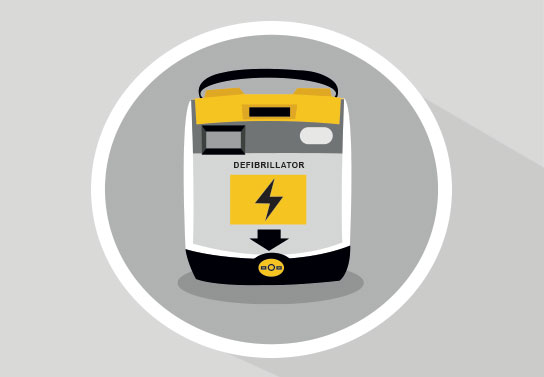
Automated External Defibrillators: What You Need To Know
Awareness of defibrillators has increased significantly in the past few years in the UK. However, although people are aware of defibrillators many are still unsure as to how they work and what exactly they do.
Defib Machines have pulled together some quick and simple answers to some of the more common questions about defibrillators.
Frequently asked questions about defibrillators
What is an AED?
Automated External Defibrillator, commonly known as an AED, is a small portable defibrillator. It provides necessary treatment following a cardiac arrest.
What is a cardiac arrest?
Put simply, a cardiac arrest is an electrical problem that stops the heart from pumping blood around the body effectively. When blood cannot be pumped around the body, oxygen cannot get to vital organs which unfortunately results in death within a short period of time. Chances of survival fall by 10% every minute that passes following a cardiac arrest.
What is sudden cardiac arrest?
More common in younger people and athletes, sudden cardiac arrest (SCA) is when the heart suddenly and unexpectedly stops beating correctly. After a sudden cardiac arrest a person must be treated using an AED within 5 minutes to provide the best chances of survival.
How do I know that someone is in cardiac arrest?
If somebody is found to be not breathing normally, or at all, and not responding you should always presume it is a cardiac arrest. Immediately call 999 and get the nearest defibrillator if one is available.
How does an AED work?
Unlike manual defibrillators seen on TV or in films, an AED is an automatic defibrillator. This means there are no paddles to rub together and scream ‘CLEAR’.
An AED performs a full ECG of the patient. In doing so it can then recognize if the heart is in cardiac arrest or not. From this it will either advise if a shock is needed to be given, or dependent on the type of device, provide the shock automatically.
Can a shock be given when not needed?
No. An AED can only provide a shock when one is needed. This is determined from the ECG findings. Unless an abnormal rhythm is detected a shock cannot be delivered.
Automatic Defibrillators from Defib Machines
Defib Machines are the UK’s leading suppliers of life-saving automatic defibrillators rentals. Installing a defibrillator at businesses or public areas can help to reduce loss of life due to cardiac arrest.
For any more information on the devices we supply, do not hesitate to get in touch with a member of our expert team. You can contact us online or call us directly on 0800 0852 733.


